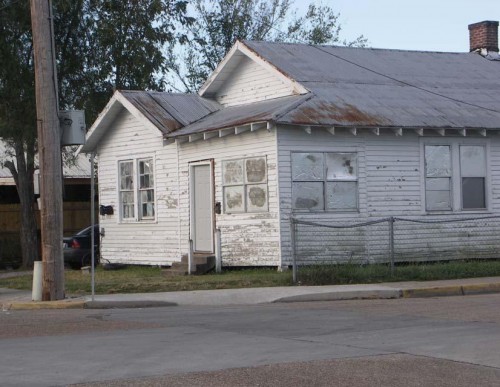Tuesday, Nov. 16
November 16, 2010
Neighbors angered over blight
November 18, 2010This year’s mid-term elections produced a new set of winners and losers, and with the dramatic shift in power that occurred, much of the legislation passed by the 111th Congress will be re-examined in the coming years.
The Patient Protection and Affordable Care Act (PPACA), a keystone accomplishment of our current Congress and the signature wealth redistribution program of the Obama presidency, produced its own set of winners and losers. Now n before this period of introspection begins n seems an appropriate time to identify the PPACA winners and losers under the law as it is currently written.
WINNERS
The clear winners are as many as 30 million uninsured Americans who, in 2014, will be eligible to enroll in an expanded Medicaid program or qualify for federal subsidies to purchase health insurance.
And, it is possible that this number could increase by another 100 million or so if enough employers force their employees into the arms of the federal government by ceasing to offer health insurance and paying a fine that will be substantially less than funding an insurance plan.
Which of these cast-off employees will be winners, and which will lose? It’s a mixed bag. Lower income individuals who qualify for a subsidy could be winners; but those who earn too much to buy government-discounted health insurance on the exchange will pay more for their policies.
This wild card could drive up the cost of this new government program far more than the authors of the legislation ever intended, and if this happens, American taxpayers will be the big losers.
LOSERS
Employers n The consulting actuarial firm Oliver Wyman estimates that businesses in states like Louisiana will pay an average of 20 percent more for health insurance over a five-year period than they would have paid if the reform bill had not become law.
Individuals n The Oliver Wyman firm projects that individual policyholders who purchase insurance on the exchange in 2014, but don’t qualify for subsidies, will pay an average of 50 percent more as a result of healthcare reform legislation.
Doctors n With the expansion of Medicaid and the enrollment of Baby Boomers, doctors who accept these patients will face sustained financial pressures as they are reimbursed at a rate far less than the cost of delivering care.
Hospitals n The new Medicaid mix will affect hospitals in the same way. In addition, new restrictions on purchasing, billing and other practices will result in even lower Medicare reimbursements.
Drug companies n The pharmaceutical industry will pay a market-share tax starting in 2011, when it will total $2.5 billion, and increasing to $4.1 billion in 2018.
Medical device manufacturers n This industry will pay a new 2.3 percent federal excise tax.
Health insurers n In 2014 all health insurers will be subject to an $8 billion market-share tax. Blue Cross and Blue Shield of Louisiana estimates its share of this new tax at approximately $30 million, and that it will climb to about $60 million by 2017. That is a known cost; what is unknown is the additional cost of taking all comers in 2014, regardless of their health status. This will create a situation in which individuals could buy health insurance after being diagnosed with a sickness and drop it when their health is restored. It’s somewhat like applying for car insurance after the wreck, or taking out a homeowner’s policy once a hurricane has blown your roof away. There are no guidelines to determine the magnitude of this cost.
Insured Americans n Sadly, much of the cost of paying for guaranteed-issue policies will be passed along to policyholders. Also, their premiums will continue to be increased by healthcare providers who attempt to compensate for government underpayment by demanding more money from private insurers. This phenomenon, known as cost-shifting, presently accounts for an estimated 14 percent of all private healthcare premiums, and likely will increase substantially after 2014. In addition to this, premiums will be further increased by new, mandated, healthcare services, and by taxes imposed on drug companies, health insurers and others, which will be factored into premiums.
Citizens n Many American citizens will pay higher Medicare and federal income taxes, major sources of funding for healthcare reform.
Along with many other stakeholders, I believe that yesterday’s healthcare system was broken and needed fixing. But I’m certain that the Patient Protection and Affordable Care Act, as presently drafted, is not the fix we need. While this ambitious legislation will benefit millions of Americans who cannot afford health insurance, I am convinced it does not have to place such an onerous burden on their fellow Americans.
I can only hope that when the 112th Congress is convened, lawmakers of both parties will closely study this important, imperfect law to determine if and how it can be fixed, and work together to modify it, or n as House Republican Leader John Boehner suggests n begin to lay the groundwork to repeal PPACA and start fresh with a commonsense approach that will work for all Americans.







